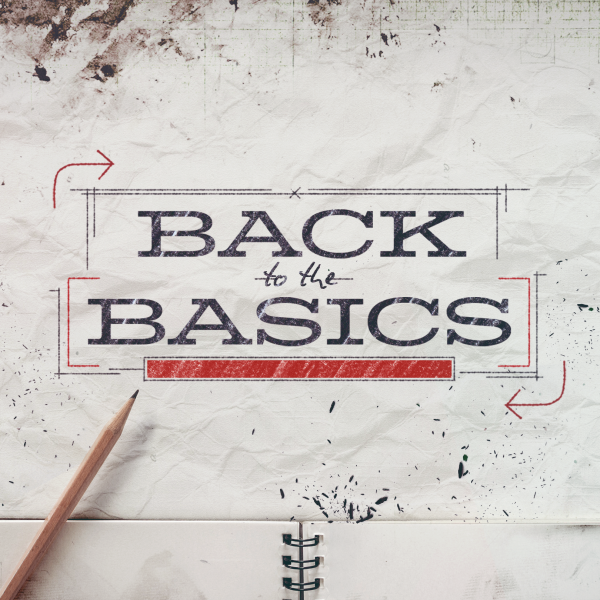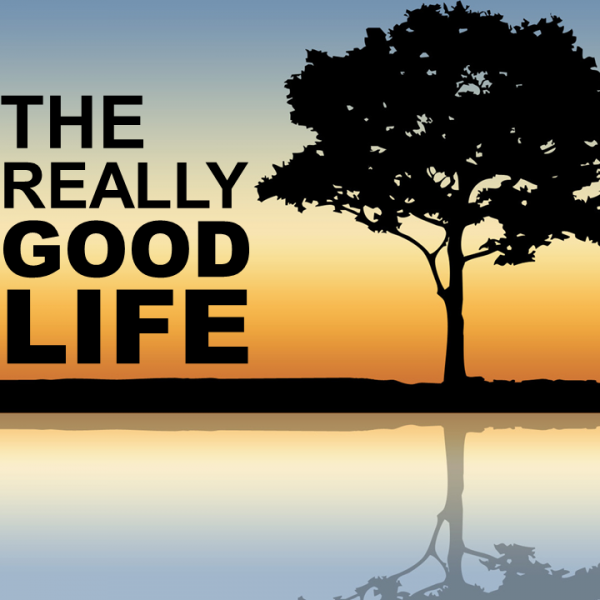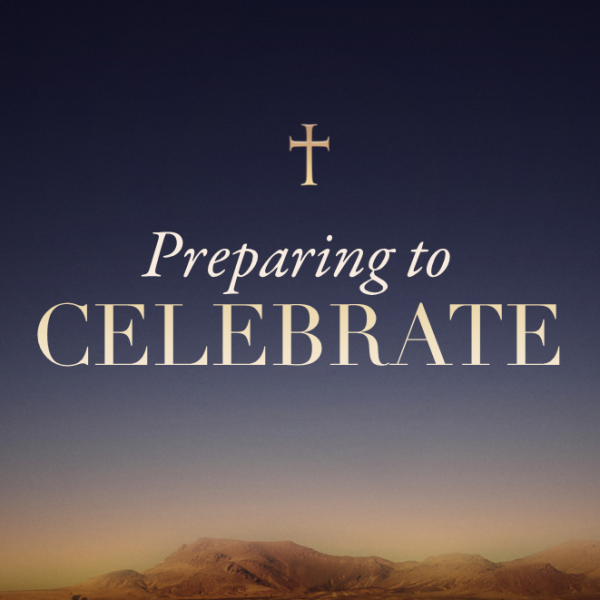The God of Sufficiency
LENT DEVOTIONS (WEEK 4)
This week we move from a place of a challenge to a place of familiarity. The Lenten passage this week is one that is well known across many Christian denominations. For our devotion, we focus on the latter half of this passage and how it might inspire us in a new and fresh way.
SCRIPTURE: John 3:19-21
DISCUSSION: Take some time to talk about or draw on paper different opposites that you see in your everyday life? What can you learn from them? Together, think of and share times that light was helpful. Also, think of and share times where light was uncomfortable. This John passage urges us to seek truth and to live in the light. What might that look like for you in your home? In your school? In your community?
ACTIVITY: One way that we can follow Jesus is by looking for ways to share the “light of Christ” with others. Our John passage shares that when we live in the light, others will understand that our actions are in line with God’s purposes. But how can we increase our awareness of following the light of Christ? This week, consider using the following verse from the letter to the Philippians as a guide. “Finally, beloved, whatever is true, whatever is honorable, whatever is just, whatever is pure, whatever is pleasing, whatever is commendable, if there is any excellence and if there is anything worthy of praise, think about these things.” (Philippians 4:8). This Sunday evening, gather as a family and brainstorm how you can live in a way that shines Christ’s light in your church, school, community this week. Write down or draw the example you choose. As your act of fasting this week, make the choice to practice your example of Christ’s light in the world. Make a point to check in with each other during the week by asking, “How are you choosing light today?”
PRAYER: God of love and light, You gave us your Son to conquer death and bring us into life. To lead us out of darkness and illuminate our paths with light. Help us this week and every week to learn how to choose light and to share that light with each other so that we may know the vastness of your love for us and for this world. AMEN.
When Crisis Comes
1. Share a time in your life when you faced a crisis or a major challenge. What did you do? What was the outcome?
Read 2 Chronicles 20:1-31
2. What was the threat Israel had to face and what was Jehoshaphat’s initial reaction? Can you relate?
3. Admitting that he didn’t know what to do, what steps did Jehoshaphat take facing the looming crisis? Is there any wisdom you could gain from that?
4. Observe how Jehoshaphat prays. Instead of rushing into God’s presence with Israel’s problem what did he do? Why did he start his prayer that way?
5. What can you learn from Jehoshaphat when you turn to God in prayer facing a crisis?
6. How did God answer Jehoshaphat’s prayer? What does it tell you about how God may answer your prayers?
7. Although God promised that the battle is His, the people of Israel still had to obey and do their part. They sing and pray Psalm 136 (v.21). What may God want you to do as you face your crisis?
8. When has God given you reason to rejoice over your enemies?
9. What do you hear God telling you through this story? What do you need to do?
Fuel for the Journey
1. Share a memorable story of when you or someone you know ran out of fuel while driving / mowing the lawn / barbequing / using a snow blower, etc. What stands out to you about that experience?
2. We often don’t change when we see the light – we first need to feel the heat…we won’t change until we feel enough pain. Why do you think many of us continue to live an overloaded, stressed-out life? Why don’t we get fed up with it and make needed changes in our life rhythms?
3. Jesus said: “Come to me, all of you who are weary and carry heavy burdens, and I will give you rest. Take my yoke upon you. Let me teach you, because I am humble and gentle at heart, and you will find rest for your souls. For my yoke is easy to bear, and the burden I give you is light.” (Matthew 11:28-30 NLT)
What did Jesus have in mind when He said, “Come to me”? What actions are needed for us to “come to Jesus”? How is this different from society’s solution to getting rest?
4. Describe how being yoked to Jesus could lighten a load you are carrying.
5. Describe how being yoked to Jesus might help you live life at a healthier pace.
6. What is it that you feel Jesus is teaching you at this point in your journey? What do you sense is an area you need to do some growing in your spiritual journey right now?
7. What is the difference between getting physical rest and getting rest for your soul? How are they linked?
8. What is significant about Jesus saying that He is gentle and humble at heart? Why would this give you rest for your soul?
9. How would staying connected to your church family lighten the load in your life?
10. How have you sensed God speaking to you through this study? What are you going to do about it?
Leaving Life in the Fast Lane
1. How are you feeling about the pace of your life right now? Do feel you have established healthy rhythms in your life, taking into consideration work-life balance, time to nurture your spiritual journey and time set aside to serve others, as well as time for recreation and for friends? Why or why not?
2. Too many people today feel that the pace of their lives is too fast. Always being in a hurry harms us physically, emotionally, relationally, and spiritually. Discuss how hurry has affected you and how it has hurt those you love.
3. The Apostle Paul wrote in Philippians 4:11 (NIV): “I have learned to be content whatever the circumstance.” What drives people to push so hard in life? While ambition is not necessarily unhealthy, it can drive us to feel discontented. What are some unhealthy ambitions? What is the secret of being content?
4. If you were to make a “life’s priorities” list or a “what matters most” list for your life, what would be on it? How can you use this list to help you discern when to say “yes” and when to say “no”?
5. In Exodus 20:9-10 (TEV) we read: “You have six days in which to do your work, but the seventh day is a day of rest dedicated to me.” Jesus said (Matthew 11:29 Msg): “Walk with me and work with me – watch how I do it. Learn the unforced rhythms of grace.” Why is rest and relaxation so important that it is one of the Ten Commandments? How might you establish a weekly Sabbath? What are we to learn by walking with Jesus?
6. We talk about needing to trust God, but we don’t always think about trusting His timing. We can easily grow impatient and try to fulfill God’s promise ourselves. Discuss the fine line between trusting God and trusting God’s timing with our role in fulfilling God’s promises in our lives.
7. The Apostle Paul wrote to the church in Ephesus (5:1-2 GNT): “Since you are God’s dear children, you must try to be like him. Your life must be controlled by love, just as Christ loved us and gave his life for us as a sweet-smelling offering and sacrifice that pleases God.” In trying to move from living an overloaded, hurried, stressed-out life to one that has a healthy rhythm to it, ask, “What is the loving thing to do here?” How can asking that question help you slow down? What do we learn from Jesus’ example in these verses?
8. How have you sensed God speaking to you through this study? What are you going to do about it?
Making Room for Life
1. In what way(s) are you feeling overloaded right now? Why? What do you think you could do to make your schedule, the rhythm of your life, more manageable? Give a couple of examples.
2. How does our culture get us to think we have no limits in our lives and activities?
3. Read Ecclesiastes 4:8. Give examples of things that drive some people to overload in life?
4. What are some warning lights in your life that indicate to you that you are reaching your limits?
5. Read Exodus 23:12. God tells us to rest one day a week. Why does that seem so hard to do at times? What would taking a day for rest and spiritual refreshment look like for you? What kind of an effect do you think it would have in your life?
6. Why is it that the faster you go, the more margin you need?
7. What’s the wisdom behind regularly evaluating your commitments?
8. How would having more space in your schedule enhance your relationship with God?
9. What are the benefits of living with margin in your life?
10. What are some things (of the things you are wrestling with right now) that are causing you to feel overloaded? What changes would give your life more “room”?
11. Sometimes the commitments we make and the activities we participate in can become idols in our life that we hang on to. Is there an idol or two that could be cut from your schedule or your budget?








